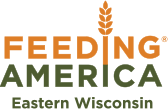Mike is a homeless man staying at a men’s shelter. He has been receiving $194 in FoodShare benefits each month for years and without any income would not be able to eat without them. A Second Harvest Foodbank FoodShare Outreach Specialist visits the men’s shelter on a weekly basis to provide application assistance, help with renewals and support for ongoing maintenance of benefits.
With the implementation of the ABAWD work requirement, Mike was referred to the FoodShare Employment & Training (FSET) program in May 2015. As part of the program, he began receiving a bus pass to get job training, resume help and attend job interviews. FSET provided him with supportive services that paid for uniform pants and work shoes. This month he secured a job at a hospital in the kitchen making approximately $1800/month. He is still plans to stay at the men’s shelter for a month before moving into transitional housing. After his first paycheck, he will no longer be eligible for FoodShare benefits as he will be able to provide for himself!
The Able Bodied Adults without Dependents (ABAWD) work requirement went into effect in April 2015 (read more here). Second Harvest Foodbank’s FoodShare Outreach team has been busy educating and assisting individuals through the policy change to help them maintain benefits beyond the 3-month time limit and connecting them to employment and training programs that not only help individuals maintain benefits, but get them resources to secure a job and get on their feet. For more information about FSET and the ABAWD work requirement, visit our website.


